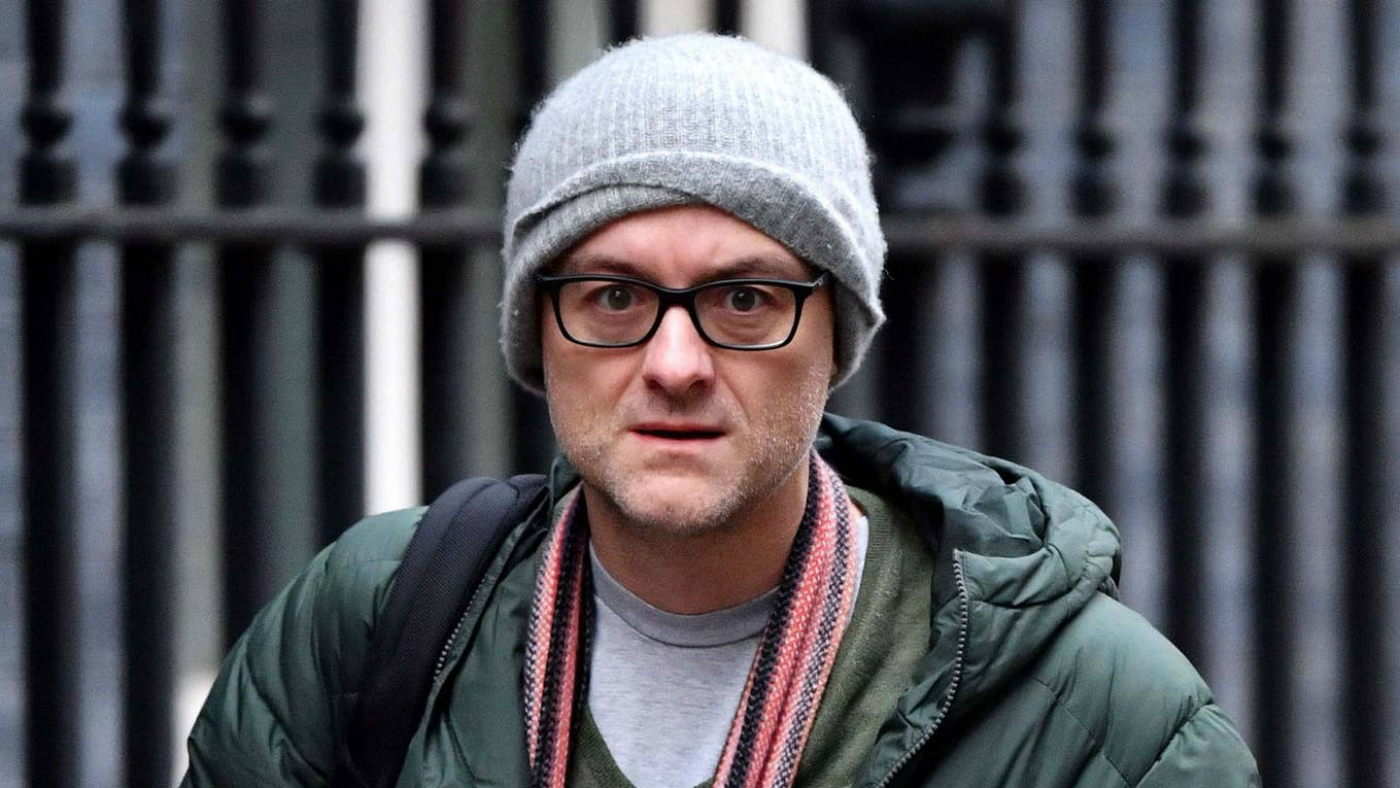What is eugenics and why are Tory aides interested in it?
Pressure mounts on Downing Street to sack aide who praised merits of selective programme

A free daily email with the biggest news stories of the day – and the best features from TheWeek.com
You are now subscribed
Your newsletter sign-up was successful
Boris Johnson is under pressure to sack a 27-year-old adviser who praised the merits of eugenics.
It has been revealed that Andrew Sabisky, who was appointed by Dominic Cummings, the prime minister’s chief adviser, said in 2016: “Eugenics are about selecting ‘for’ good things. Intelligence is largely inherited and correlates with better outcomes: physical health, income, lower mental illness.”
Eugenics refers to the belief and practices that aim to improve the genetic quality of a human population by excluding genetic groups judged to be inferior, and promoting genetic groups judged to be superior.
The Week
Escape your echo chamber. Get the facts behind the news, plus analysis from multiple perspectives.

Sign up for The Week's Free Newsletters
From our morning news briefing to a weekly Good News Newsletter, get the best of The Week delivered directly to your inbox.
From our morning news briefing to a weekly Good News Newsletter, get the best of The Week delivered directly to your inbox.
As Kenan Malik wrote in The Guardian, eugenicists believe the state should “encourage the ‘enlightened’ to have more children and discourage the lower orders, whether the poor, the disabled or the immigrant, from breeding”.
This controversial concept began with Plato but has in more recent terms been linked to Nazi Germany and then the white supremacy movement.
Sabisky’s comments are potentially embarrassing for the government and there has already been criticism from within the Conservative Party. The FT says a Tory official has asked: “Would a minister survive if remarks like that came to light?”
However, Cummings himself has written about eugenics. In a 2013 blogpost, he cited research that concluded that discovering “genes responsible for general cognitive ability and specific abilities and disabilities” would “enable truly personalised education including early intervention for specific learning difficulties”.
A free daily email with the biggest news stories of the day – and the best features from TheWeek.com
Cummings also highlighted a study from the geneticist Robert Plomin, which he said showed 70% of a child’s educational performance came down to “heritability” genes.
He added: “When forced to confront such scientific developments, the education world and politicians are likely to handle them badly partly because there is such strong resistance across the political spectrum to accepting scientific evidence on genetics.”
Turning to education, Cummings argued that: “a child's performance has more to do with genetic makeup than the standard of his or her education”. Writing in New Scientist, Steven Rose, Emeritus Professor of Biology, said Cummings beliefs were “sheer fantasy”.
In response to controversy when his remarks were widely shared, Cummings insisted that he had “warned of the dangers of public debates being confused by misunderstanding of such technical terms”.
–––––––––––––––––––––––––––––––For a round-up of the most important stories from around the world - and a concise, refreshing and balanced take on the week’s news agenda - try The Week magazine. Start your trial subscription today –––––––––––––––––––––––––––––––
-
 Is Andrew’s arrest the end for the monarchy?
Is Andrew’s arrest the end for the monarchy?Today's Big Question The King has distanced the Royal Family from his disgraced brother but a ‘fit of revolutionary disgust’ could still wipe them out
-
 Quiz of The Week: 14 – 20 February
Quiz of The Week: 14 – 20 FebruaryQuiz Have you been paying attention to The Week’s news?
-
 The Week Unwrapped: Do the Freemasons have too much sway in the police force?
The Week Unwrapped: Do the Freemasons have too much sway in the police force?Podcast Plus, what does the growing popularity of prediction markets mean for the future? And why are UK film and TV workers struggling?
-
 How corrupt is the UK?
How corrupt is the UK?The Explainer Decline in standards ‘risks becoming a defining feature of our political culture’ as Britain falls to lowest ever score on global index
-
 The high street: Britain’s next political battleground?
The high street: Britain’s next political battleground?In the Spotlight Mass closure of shops and influx of organised crime are fuelling voter anger, and offer an opening for Reform UK
-
 Is a Reform-Tory pact becoming more likely?
Is a Reform-Tory pact becoming more likely?Today’s Big Question Nigel Farage’s party is ahead in the polls but still falls well short of a Commons majority, while Conservatives are still losing MPs to Reform
-
 Taking the low road: why the SNP is still standing strong
Taking the low road: why the SNP is still standing strongTalking Point Party is on track for a fifth consecutive victory in May’s Holyrood election, despite controversies and plummeting support
-
 What difference will the 'historic' UK-Germany treaty make?
What difference will the 'historic' UK-Germany treaty make?Today's Big Question Europe's two biggest economies sign first treaty since WWII, underscoring 'triangle alliance' with France amid growing Russian threat and US distance
-
 Is the G7 still relevant?
Is the G7 still relevant?Talking Point Donald Trump's early departure cast a shadow over this week's meeting of the world's major democracies
-
 Angela Rayner: Labour's next leader?
Angela Rayner: Labour's next leader?Today's Big Question A leaked memo has sparked speculation that the deputy PM is positioning herself as the left-of-centre alternative to Keir Starmer
-
 Is Starmer's plan to send migrants overseas Rwanda 2.0?
Is Starmer's plan to send migrants overseas Rwanda 2.0?Today's Big Question Failed asylum seekers could be removed to Balkan nations under new government plans